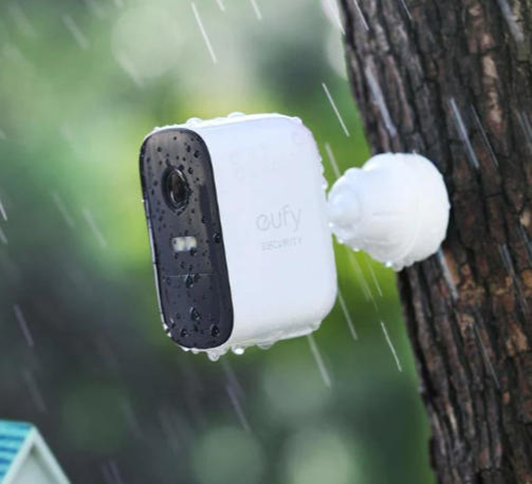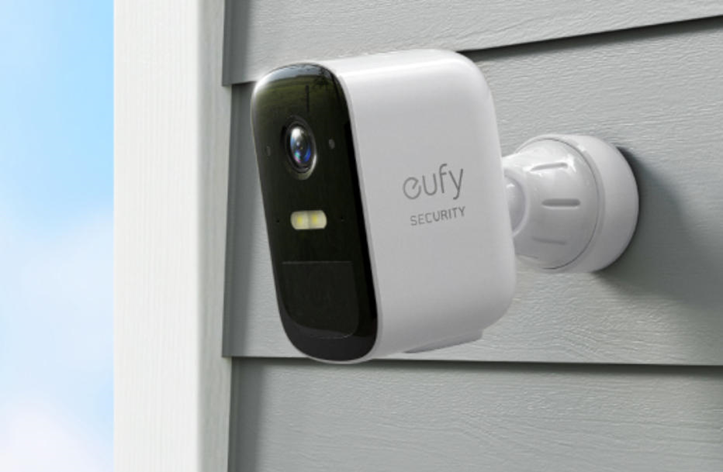Security cameras have become essential for modern homeowners, but choosing between wireless and wired systems can be challenging. Wireless cameras promise hassle-free installation and smart features, while wired options offer uninterrupted reliability. For busy families, renters, and tech-savvy users, wireless models provide a compelling balance of convenience and performance. But are they truly worth the investment compared to traditional wired setups? In this article, we’ll examine the real-world pros and cons of wireless security cameras to help you make an informed decision for your home.

Key Advantages of Wireless Systems
Easy Installation & No Wiring Hassles
One of the biggest selling points of wireless security cameras is their effortless setup. Unlike wired systems that require drilling holes, routing cables, and connecting to power sources, wireless cameras can be mounted in minutes. Most models come with adhesive mounts or simple screw-on brackets, allowing you to place them anywhere without professional help. This is especially useful for renters or those who frequently rearrange their home security setup. Battery-powered options eliminate the need for nearby outlets, while Wi-Fi connectivity means no Ethernet cables are needed.
Flexible Placement & Portability
Wireless cameras give you the freedom to position them wherever they’re most effective, without being limited by power outlets or wiring constraints. Whether you need to monitor a front porch, backyard, or garage, you can easily move the cameras as your security needs change. This flexibility is ideal for seasonal adjustments—like focusing on pool areas in summer or holiday decorations in winter. If you move homes, wireless cameras can be taken down and reinstalled without leaving behind unsightly wires or holes. This portability ensures your security system grows and adapts with your lifestyle, rather than locking you into a fixed setup.

Performance & Reliability Considerations
WiFi Range & Signal Stability
A common concern with wireless security cameras is their dependence on Wi-Fi signals. While modern routers provide strong coverage, thick walls or long distances can weaken connectivity. To ensure stable performance, place cameras within a reasonable range of your router or use Wi-Fi extenders for larger properties. Some advanced models support dual-band Wi-Fi (2.4GHz and 5GHz), allowing them to switch to the stronger signal automatically. For homes with connectivity challenges, mesh Wi-Fi systems can provide seamless coverage. While wired cameras don’t face these issues, a well-planned wireless setup can deliver equally reliable performance for most households.
Battery Life & Power Options
Battery-powered wireless cameras offer unmatched convenience but require occasional recharging. Most models last between 3-6 months per charge, depending on usage and motion detection settings. Solar-powered options provide a maintenance-free alternative, continuously recharging under sunlight. For those who prefer constant power, some wireless cameras still support wired connections via USB or adapters, offering the best of both worlds. The key is choosing a power solution that fits your lifestyle—whether that’s long-lasting batteries, solar panels, or a hybrid approach. While battery changes are a minor inconvenience, they’re a small trade-off for the flexibility wireless cameras provide.
Smart Features & Connectivity
Modern wireless security cameras go beyond basic recording—they integrate seamlessly with smart home ecosystems. Many models support voice assistants like Alexa and Google Assistant, allowing you to view live feeds on smart displays with simple commands. AI-powered motion detection reduces false alerts by distinguishing between people, pets, and vehicles. Two-way audio lets you communicate with visitors or deter intruders remotely. Some cameras even pair with smart locks and lights, triggering automated responses when motion is detected.
Cost Comparison: Upfront vs Long-Term
Equipment Price Differences
Wireless security cameras often have a higher upfront cost than basic wired models, primarily due to their advanced technology and built-in batteries. However, prices have become increasingly competitive, with budget-friendly options now offering impressive features. When comparing systems, factor in additional costs like wiring, professional installation, and power supplies for wired setups. Many wireless cameras include free cloud storage for short-term clips, while wired systems may require a separate DVR or subscription. Over time, the convenience and scalability of wireless systems often justify their initial price premium.
Installation Savings
The biggest cost advantage of wireless cameras comes from their DIY-friendly installation. Wired systems typically require professional help, adding hundreds of dollars in labor fees. Wireless setups eliminate these expenses entirely—most homeowners can install them in under an hour. There’s also no need for electrical work or wall repairs, which can be costly in finished homes. If you ever need to expand your system, adding another wireless camera is as simple as mounting it and syncing it with your app.
Ideal Use Cases for Wireless
Renters & Temporary Setups
For renters or those in temporary living situations, wireless cameras are the clear winner. Landlords often prohibit permanent modifications, making wired installations impractical. Wireless models can be mounted with non-destructive adhesives or freestanding bases, then removed without a trace when moving. Their portability also makes them ideal for vacation homes, Airbnb hosts, or college students in dorms. Since they don’t rely on hardwired connections, they adapt effortlessly to changing living arrangements.
DIY Home Security
Homeowners who prefer a hands-on approach will appreciate the simplicity of wireless systems. Without complex wiring or a professional setup, you can customize your security coverage as needed. Want to add a camera after noticing a blind spot? Just mount a new unit and connect it to your existing system. Wireless cameras also allow for easy experimentation—testing different angles before committing to permanent positions. For tech enthusiasts, the ability to integrate with smart home platforms adds another layer of customization. Whether you’re securing a small apartment or a large house, wireless cameras put you in full control.
Conclusion
When weighing the pros and cons, wireless security cameras prove to be a smart investment for most households. Their easy installation, flexible placement, and smart features make them ideal for modern living. While wired systems still excel in certain scenarios (like large properties with poor Wi-Fi), wireless models offer the best balance of convenience and performance for everyday users. Brands like eufy provide excellent wireless camera options that combine reliability with user-friendly technology. Whether you’re a renter, homeowner, or tech enthusiast, a well-chosen wireless camera system can deliver peace of mind without the hassle of wires.
